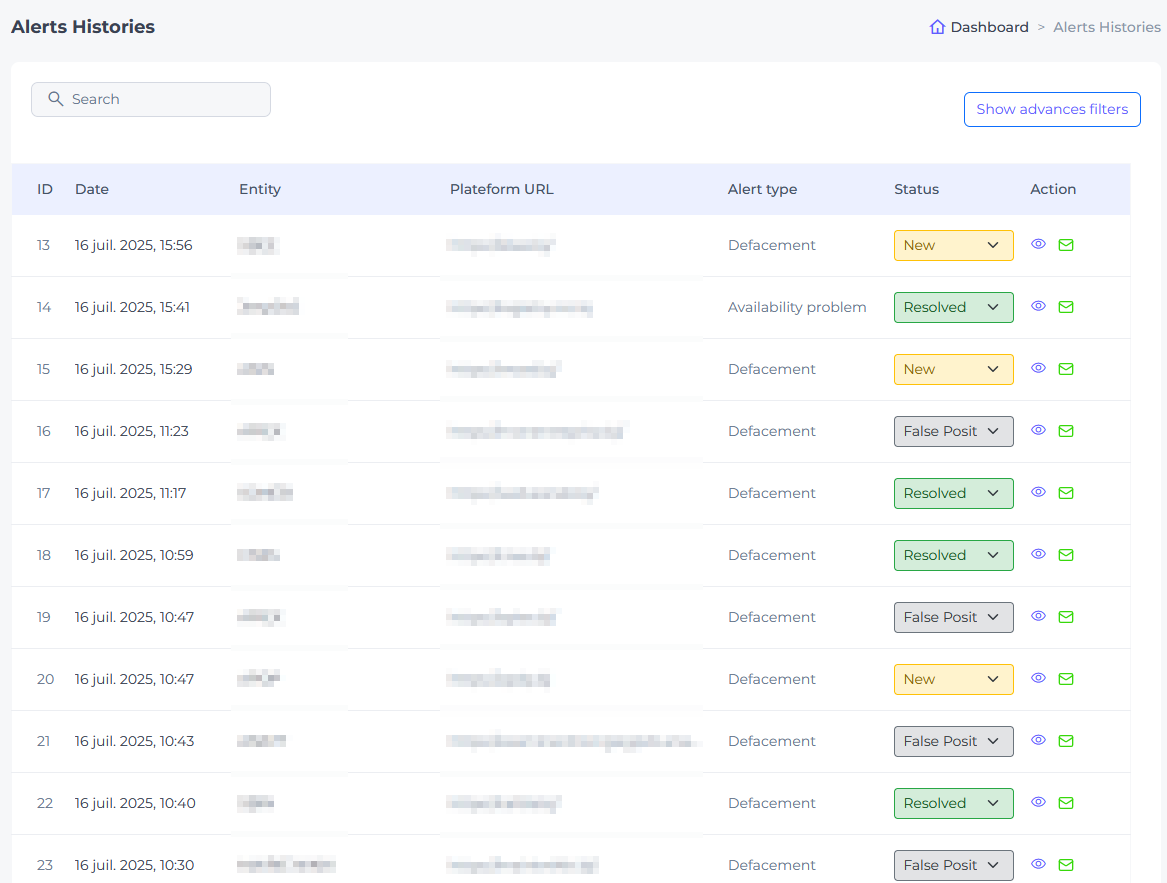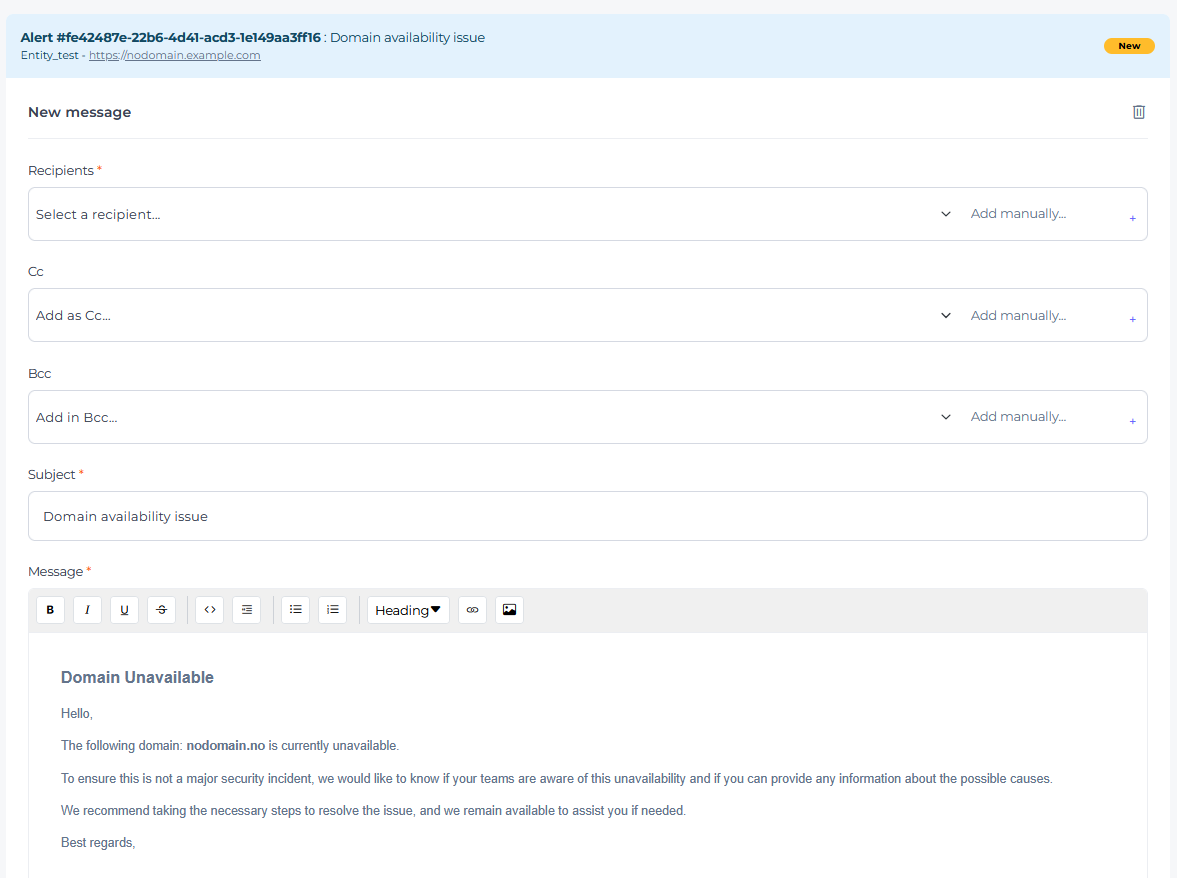Alerts Management
Overview
The Alerts Management interface provides comprehensive control over security alerts generated by Oju monitoring. Users can filter, view, update alert status, and send email notifications to relevant stakeholders.
Alert Status Management
Changing Alert Status
Process:
-
Locate alert in the table
-
Click status dropdown (currently shows "New", "In Progress", etc.)
-
Select new status from available options
-
Status updates automatically with system logging
Validation:
-
Only status field can be modified
-
Status must be different from current value
-
Changes are logged for audit trail

Email Notifications
Email Template System
Automatic Template Generation:
-
Alert-specific content generated automatically
-
Includes alert type, affected platform, and technical details
-
Message body contains formatted alert information
Recipient Management
Focal Points Selection:
-
Only active focal points from the affected entity are available
-
Primary recipient must be a focal point of the entity
-
CC/BCC can include other focal points or system users
-
Email validation ensures recipient authenticity
Email Composition:
-
Click email icon for the alert
-
Select recipients from available focal points
-
Review pre-generated subject and message
-
Add CC/BCC recipients if needed
-
Attach files if required (max 1MB per file)
-
Send notification

The Alerts Management interface provides comprehensive control over security incident response, enabling efficient alert processing, stakeholder communication, and incident tracking across monitored organizations.